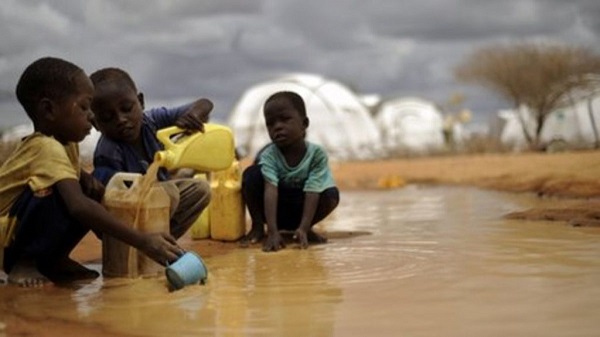
The global battle against cholera has received a significant boost with the announcement of the largest-ever deployment of rapid diagnostic tests, aimed at enhancing outbreak detection and response.
With over 1.2 million cholera rapid diagnostic tests set to be shipped to 14 countries, this groundbreaking initiative marks a pivotal moment in the fight against this deadly disease.
The first shipment, landing today in Malawi, signifies the commencement of a concerted effort to improve the timely detection and monitoring of cholera outbreaks worldwide.
Facilitated by Gavi, the Vaccine Alliance, this monumental deployment will enhance the effectiveness of vaccination campaigns in response to current outbreaks while also targeting future preventive efforts. Through the collaborative efforts of Gavi, WHO, UNICEF, FIND and other partners, the global cholera rapid diagnostic test procurement programme aims to revolutionise cholera surveillance and control strategies. By distributing these tests to countries severely impacted by cholera outbreaks, such as Ethiopia, Somalia, Syria and Zambia, the initiative seeks to bolster routine surveillance and testing capacity, enabling the rapid identification of probable cholera cases.
Moreover, the deployment of rapid diagnostic tests represents a crucial step towards building an evidence base for future preventive programs, thereby supporting the achievement of national cholera control and elimination targets. Funded and coordinated by Gavi, the Vaccine Alliance, with procurement and delivery led by UNICEF, in collaboration with the Global Task Force on Cholera Control (GTFCC) and WHO, this initiative holds immense promise for addressing the ongoing surge in cholera cases worldwide.
The global cholera diagnostics programme, developed in partnership with FIND, aims to deploy rapid diagnostic tests routinely for cholera surveillance, thereby augmenting existing outbreak response efforts. Insights gleaned from pilot studies across the Democratic Republic of the Congo (DRC), Niger and Nepal have helped inform the design of the programme, ensuring its effectiveness on a large scale. These tests, supplied by two manufacturers, will replace the erstwhile practice of using them primarily in outbreak response scenarios, underscoring a shift towards proactive surveillance strategies.
Cholera, characterised by high case fatality rates despite the availability of simple and affordable treatment, has witnessed a surge globally since 2021. The unprecedented demand for vaccines from impacted countries has strained the global stockpile, necessitating delays in preventive vaccination campaigns. The deployment of rapid diagnostic tests is poised to address this challenge by facilitating the timely identification of areas with new or persistent transmission, thereby enabling more targeted outbreak response efforts.
In 2021, the Gavi Board allocated US$ 55 million to support a comprehensive diagnostics programme spanning multiple infectious diseases, including cholera. The subsequent launch of a cholera diagnostics application window in June 2023, with 14 countries approved by an Independent Review Committee of experts, underscores the urgency of addressing the cholera crisis. Furthermore, Gavi’s preventive cholera vaccination programme, launched in 2023, has already demonstrated success in decreasing outbreaks of diseases such as yellow fever and meningitis.
Cholera, an acute intestinal infection spread through contaminated food and water, thrives in environments marked by inadequate access to safe water and sanitation. The rise in cholera cases is exacerbated by climate-related factors, conflict and population displacement, further underscoring the need for urgent action. Multisectoral strategies for cholera control must be guided by timely and reliable surveillance data, enabling stakeholders to target interventions effectively.
The updated recommendations by the GTFCC in 2023 advocate for strategic testing of suspected cholera cases and the expanded use of rapid diagnostic tests to strengthen cholera surveillance. The global cholera rapid diagnostic test procurement programme is poised to provide the necessary support for eligible countries to implement these recommendations. Urgent investments in outbreak response, case management, and improved access to treatment, vaccines and water and sanitation services are essential to curbing the spread of cholera and saving lives.
The global deployment of rapid diagnostic tests represents a significant milestone in the fight against cholera. By enhancing surveillance capabilities and enabling targeted interventions, this initiative holds the potential to mitigate the devastating impact of cholera outbreaks worldwide. Urgent and concerted efforts by countries, manufacturers and partners are imperative to address the root causes of cholera and prevent needless suffering and loss of life.

